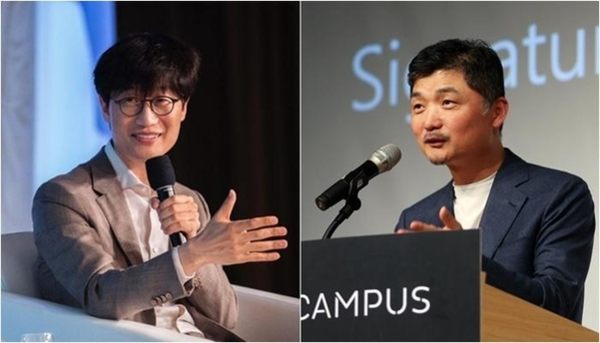Input 2021.02.24 10:32 | Revision 2021.02.24 11:12
Meet with all employees at 2 pm on the 25th to exchange questions
Naver is dissatisfied with “weaving incentives” even for its record performance
Kakao’s evaluation of’colleagues who don’t want to work together’ is controversial

According to the information technology (IT) industry on the 24th, Naver recently received criticism for not paying enough compensation to its employees despite its record-high performance last year. In an e-mail sent by Naver’s union to all employees, it protested, “The incentive pay is too small compared to the company’s performance,” and “Please disclose the calculation criteria transparently.” Naver’s last year’s sales and operating profit increased 21.8% and 5.2% from the previous year to KRW 5,3041 trillion and KRW 1.215 trillion, respectively. It is the largest sales and profit ever.
Accordingly, Naver founder Lee Hae-jin, Global Investment Officer (GIO) and Han Sung-sook, decided to open an online’Companion Day’ and explain the overall company compensation system in front of employees. An official from Naver said, “In the first place, a person in charge of personnel was planning to conduct the event in a Q&A method.”
This GIO is expected to be elucidated by focusing on the fact that Naver has not only simple incentives but also various compensation systems. Naver is attempting a compensation program each year by offering stock options (stock options) to all employees or paying 10% of the purchase price in cash when purchasing treasury stocks. This year, stock options were given to employees of the headquarters and major affiliates who worked for more than a year. The previous day, Naver announced that it granted 3253 employees a total of 111,4143 stock options at the exercise price of 36,2500 won. The closing price the day before Naver was 39,500 won.
Kakao has recently been criticized for being “cruel” in internal personnel evaluation. It started when a person who is believed to be an employee of Kakao posted a will on the anonymous community’Blind’. He said he is being seriously bullied inside the company. This article was immediately deleted by the author, and it is reported that no employee injuries or death has occurred in Kakao until now. However, the controversy spread as a follow-up post about Kakao’s personnel evaluation was followed. At Kakao, employees respond to co-workers, asking,’Do you want to work with this person?’, and the results are known to the person concerned, giving pressure and stress.
The’Brian Talk After’, which will be held on the 25th, was prepared when Chairman Kim Bum-soo announced that he will donate half of his fortune while living. It was a’warmful’ purpose for Kakao executives and employees to come up with ideas about how to donate and how to use them. However, an unexpected controversy arises ahead of the event, and it seems that other topics will be focused rather than donating.
An official at Kakao said, “It is true that this event was held as a donation opportunity, but Chairman Kim has often brought a place to communicate directly with employees from the past. “Please understand it as a general culture of cacao.” The official said, “The personnel evaluation system was introduced through discussions with employees, so the company did not unilaterally set it,” he said. “Please take into account the characteristic that the evaluation system itself cannot be satisfactory to everyone.”
